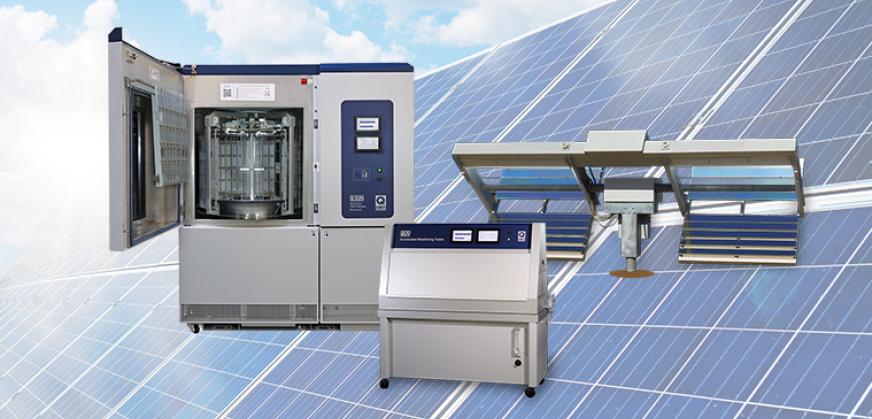Weathering Testing of Photovoltaic (PV) Modules: Webinar Recap
Blog
Last Updated 2025
As the push for renewable energy sources increases, manufacturers and investors are becoming increasingly interested in testing protocols that answer the question: how can we make PV modules last longer and perform more reliably in the field?
In a recent Q-Lab webinar, “How to Create Certification Programs That Minimize the Risk of Premature PV Module Failures,” Q-Lab's Technical Marketing team explored how advanced weathering tests are transforming the way the solar industry ensures quality and longevity.
Why Durability Matters Now More Than Ever
Solar PV modules are one of the fastest-growing segments in the renewable energy sector. This has created a demand for testing protocols and qualification testing over the last decade. PV modules face years of exposure to intense sunlight, high heat, humidity, and harsh weather. Over time, these conditions can lead to discoloration, delamination, cracking, and reduced power output.
After a quick review of what production certification means, what weathering is, and a recap of Q-Lab’s weathering testing technologies like QUV and Q-SUN accelerated weathering testers and Q-TRAC natural solar concentrators, the session covered some key topics:
What does a "Useful" Weathering Test Do?
- Helps you make decisions better and/or faster
- Reduces the risk of making bad decisions
- Reduces the risk of making a decision too slowly
Types of Weathering Tests
- Material Screening – Quick, pass/fail tests to verify quality during production
- Material Validation – Longer-term qualification tests that reduce commercial risk
- Comparative Testing – Research-driven testing to rank materials and designs side by side
- Predictive Testing – Experimental modeling to predict the service life of a material
Learning from Other Industries
Industries like automotive and construction have long understood a key truth: testing isn’t about predicting the future — it’s about reducing risk today.
By adopting similar strategies, the solar sector can achieve the same confidence and consistency. Combining laboratory, qualification, and outdoor exposure tests gives manufacturers a complete picture of how modules will perform across decades of service. Fifteen years ago, a 20-year PV lifespan seemed ambitious. Today, it’s standard, and the industry is setting its sights even higher to 30-40 years.
At Q-Lab, technologies like Q-SUN xenon arc and QUV fluorescent UV testers help replicate sunlight, heat, and moisture conditions — offering unmatched control and reproducibility. Real-world outdoor exposure sites in Florida and Arizona further validate these lab results under actual environmental conditions.
Ready to start testing? Contact our team today!
